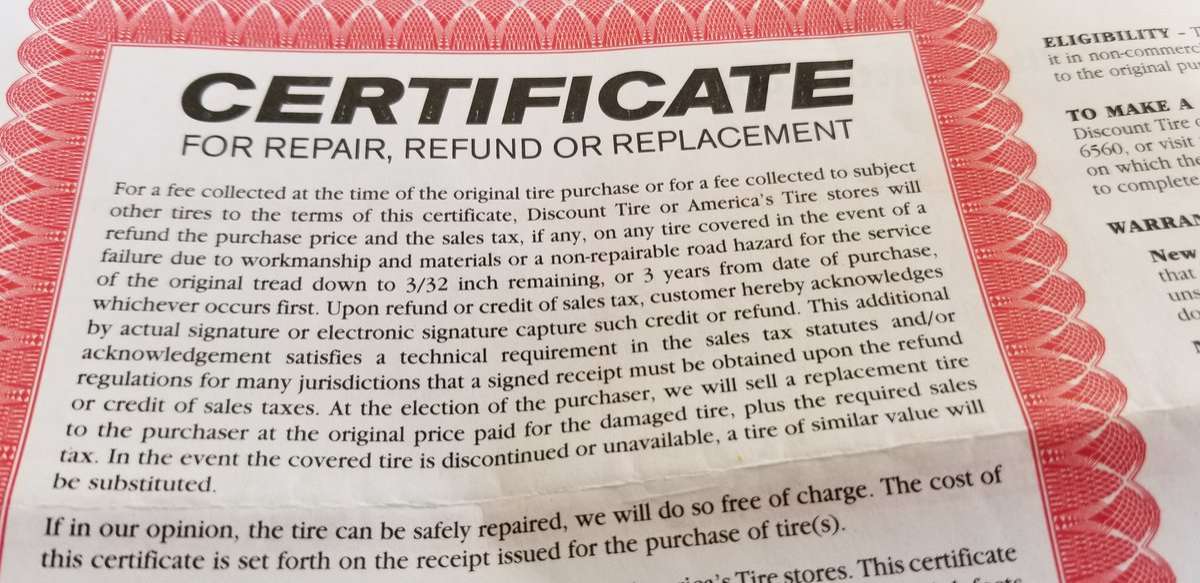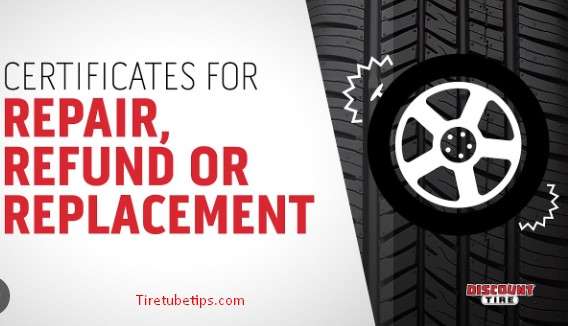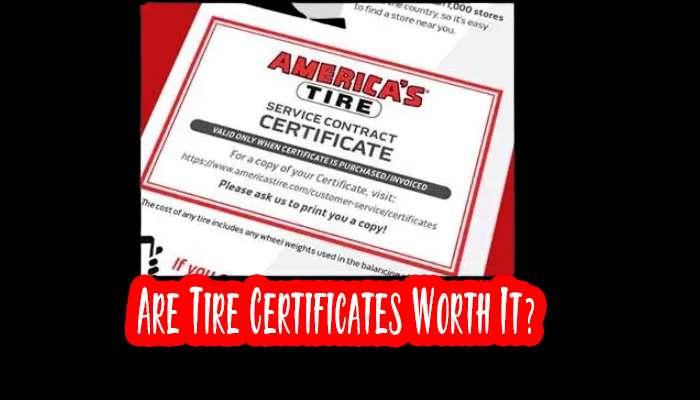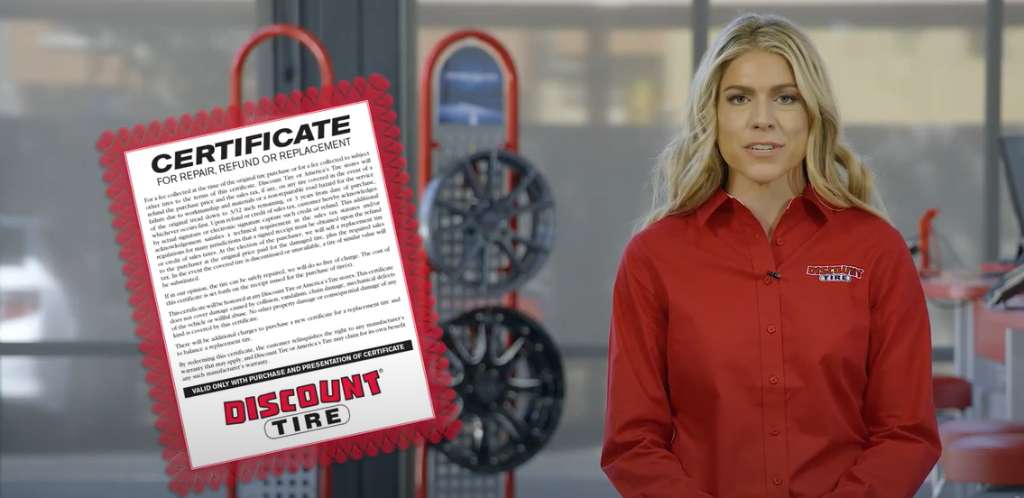Are Tire Certificates Worth It? An Expert’s Guide
Welcome to the world of tires, where each choice you make can impact your safety and savings on the road. As an avid tire enthusiast and expert, I’m here to address one of the most perplexing questions drivers often face: Are tire certificates worth it?
This comprehensive guide delves deep into the tire certificate universe, exploring the basics, benefits, costs, and real-life experiences. So, fasten your seatbelts, and let’s roll into the tire certificate journey.
If you live in an area with poor roads or if you are often driving on rough terrain, then a tire certificate may be a good investment. In the long run, it can save you money if you have to replace a tire due to damage.
The Basics of Tire Certificates

Before we dive into the depths of tire certificates, let’s start with the basics. Tire certificates are like insurance for your tires. When you purchase new tires, they come with a manufacturer’s warranty, which typically covers defects in materials and workmanship.
However, it doesn’t include damage from everyday road hazards, like potholes or nails. This is where tire certificates come into play. Read my recent post- Can a Tire Be Patched on the Side?
What Are Tire Certificates?
Tire certificates are additional protection plans that extend beyond the manufacturer’s warranty. They provide coverage for tire damage that occurs due to various road hazards, such as punctures, cuts, or impact breaks. Essentially, they offer you peace of mind on the open road.
Benefits of Tire Certificates
Now that you know what tire certificates are, let’s explore their benefits. They offer several advantages that make your driving experience safer and more cost-effective.
1. Financial Security
Tire damage can be expensive to repair or replace. With a tire certificate, you won’t have to worry about shelling out a significant amount of money for unexpected tire issues. It acts as a financial safety net.

2. Peace of Mind
Imagine driving through a construction zone and hitting a sharp object on the road. The last thing you want to worry about is how much fixing or replacing your tire will cost. Tire certificates provide peace of mind, knowing you’re covered in such situations.
3. Cost-Effective
In the long run, tire certificates can save you money. The cost of a certificate is often lower than the price of a single replacement tire, making it a cost-effective choice.
4. Convenience
Dealing with tire issues can be inconvenient, especially when you’re in a hurry. With a tire certificate, you can get back on the road faster, as the repair or replacement process is streamlined.
Understanding Tire Warranty vs. Certificates
It’s essential to differentiate between a tire warranty and a tire certificate. A tire warranty is typically provided by the tire manufacturer and covers defects in materials and workmanship. In contrast, a tire certificate is a separate purchase and extends coverage to include road hazards.
Read Also: CrossClimate 2 vs Winter Tires
Tire Warranty:
- Covers manufacturing defects.
- Usually, it comes with the purchase of new tires.
- Limited duration (often specified in years or mileage).
- Does not cover damage from road hazards.
Tire Certificate:
- Covers road hazards like punctures, cuts, or impact breaks.
- Optional purchase.
- Typically, it lasts for a specified duration (e.g., 3 to 5 years).
- Provides protection against common road hazards.
The Cost of Tire Certificates
Now, let’s talk money. How much do these tire certificates cost? The cost of a tire certificate varies depending on factors like the tire brand, size, and the specific coverage offered.
A certificate can range from $10 to $100 per tire. While this may seem like an additional expense, consider it an investment in the longevity and safety of your tires.
Are Tire Certificates Worth It?
Are tire certificates worth it? The answer depends on your driving habits and the roads you travel. A tire certificate can be a lifesaver if you-
- Live in an area with rough roads or frequent construction zones,
- Commute long distances regularly,
- Own high-performance or expensive tires,
- Want peace of mind while driving,

Then, yes, tire certificates are likely worth the investment. They provide financial protection and convenience, ensuring you won’t be caught off guard by unexpected tire damage.
However, if you have a spare tire or rarely encounter road hazards, you might not find tire certificates as valuable.
Also Read:
Are Cooper Tires Any Good?
Are Falken Tires Good?
Are Dunlop Tires Good?
Real-Life Experiences with Tire Certificates
To illustrate the value of tire certificates, let me share a couple of real-life experiences.
1. The Case of the Puncture
Susan, a daily commuter, had a tire certificate. One evening, she ran over a nail, which caused her tire to deflate. Thanks to her certificate, the repair was hassle-free, and she was back on the road in no time.
2. The Tale of the Road Trip
John embarked on a cross-country road trip with his family. He encountered a sharp rock that damaged one of his tires during the journey. Fortunately, he had purchased a tire certificate, and the entire family adventure continued without a hitch.
These stories highlight the practicality of having a tire certificate, especially when unexpected road hazards come your way.

Common Misconceptions About Tire Certificates
Now that you understand the benefits and cost-effectiveness of tire certificates, addressing some common misconceptions is essential.
Misconception 1: It’s a Scam
Some believe that tire certificates are a scam or a ploy to make more money. These certificates provide genuine protection against road hazards, giving you a safety net when needed.
Misconception 2: Regular Maintenance Suffices
While proper tire maintenance is crucial, it doesn’t shield your tires from unexpected road hazards. A tire certificate complements maintenance by covering damages that routine upkeep can’t prevent.
Misconception 3: My Insurance Will Cover It
Not all auto insurance policies cover tire damage from road hazards. Even if they do, you might have to pay a deductible, making a tire certificate a more cost-effective choice.
Frequently Asked Questions
What Do Tire Certificates Cover?
Tire certificates typically cover damage caused by road hazards, such as punctures, cuts, impact breaks, and other non-manufacturing-related issues. They do not cover regular wear and tear.
Can You Get a Certificate After Buying Tires?
Yes, you can often purchase a tire certificate after buying your tires, as long as they are in good condition and have not suffered any damage. However, buying the certificate when you purchase the tires is recommended for the best coverage.
What Happens If I Need a Replacement?
Suppose you need a tire replacement covered by your certificate. In that case, you can usually get it replaced for free or at a significantly reduced cost, depending on the terms of your certificate.
Are Tire Certificates Transferable?
Tire certificates are often transferable to a new owner if you sell your vehicle. Check the terms and conditions of your specific certificate for details.
How Long Do Tire Certificates Last?
The duration of tire certificates varies but typically ranges from 3 to 5 years. Be sure to check the expiration date and renewal options on your certificate.
What Does Certificate Mean When Buying Tires?
When buying tires, a certificate means you purchase additional protection beyond the manufacturer’s warranty. It covers damage from road hazards and offers peace of mind during travel.
Conclusion
Tire certificates serve as your safety net in the world of tires, where road hazards are unpredictable. They offer financial security, peace of mind, and cost-effectiveness. However, the decision of whether they are worth it depends on your driving habits and the roads you frequent.
So, are tire certificates worth it? The answer is a resounding “yes” for those who want to protect their investment and enjoy worry-free driving. Remember, it’s not just about the cost; it’s about the convenience and peace of mind that come with having a safety net for your tires.
References
Glossary
- Tire Certificate: An additional protection plan that covers tire damage from road hazards.
- Manufacturer’s Warranty: Coverage provided by the tire manufacturer for defects in materials and workmanship.
- Road Hazards: Common obstacles or dangers on the road, such as potholes, nails, or debris.




